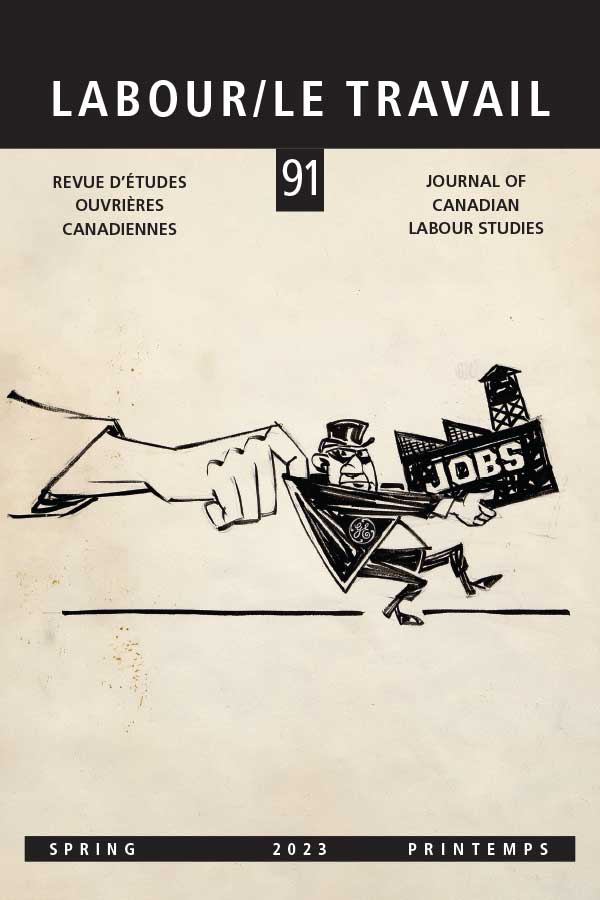Published 2023-05-25
Keywords
- garment and textile industry,
- rank-and-file organizing,
- immigrant women,
- gendered labour,
- strike
- oral history,
- trade liberalization,
- piecework,
- Montréal,
- Québec ...More
How to Cite
Abstract
On 15 August 1983, 9,500 workers from the Montréal locals of the International Ladies’ Garment Workers’ Union went on strike for the first time in 43 years. The strike became known as “la grève de la fierté” and made clear that the women working in the city’s garment factories were taking a stand against the layoffs and closures prompted by industrial restructuring and deindustrialization. However, the strike’s success was limited, revealing the extent to which the structural inequities in the garment industry had calcified along gendered, classed, and ethnic lines. The union executive had grown increasingly distant from its rank-and-file, and it was immigrant women workers who were left to organize against the flurry of closures and the corresponding decline in their working conditions. The campaign leading up to the 1983 strike, organized by the Comité d’action des travailleurs du vêtement, articulated a series of demands for the improvement of workplace health and safety conditions, better benefits, and more representative union leadership. With original archival research and oral history interviews, I argue that the 1983 “grève de la fierté” illustrates how the historically entrenched gendered structure of labour relations shaped the pathways of deindustrialization in Montréal’s garment industry.
